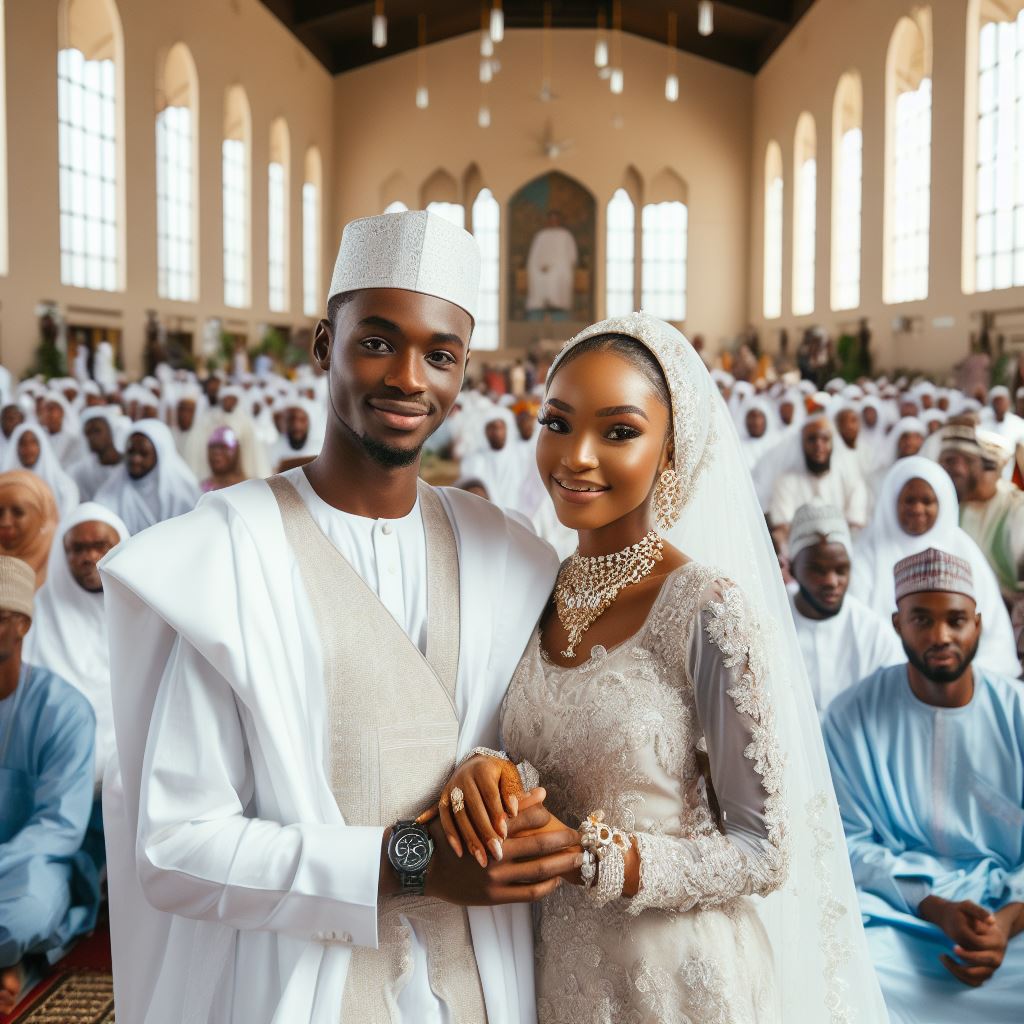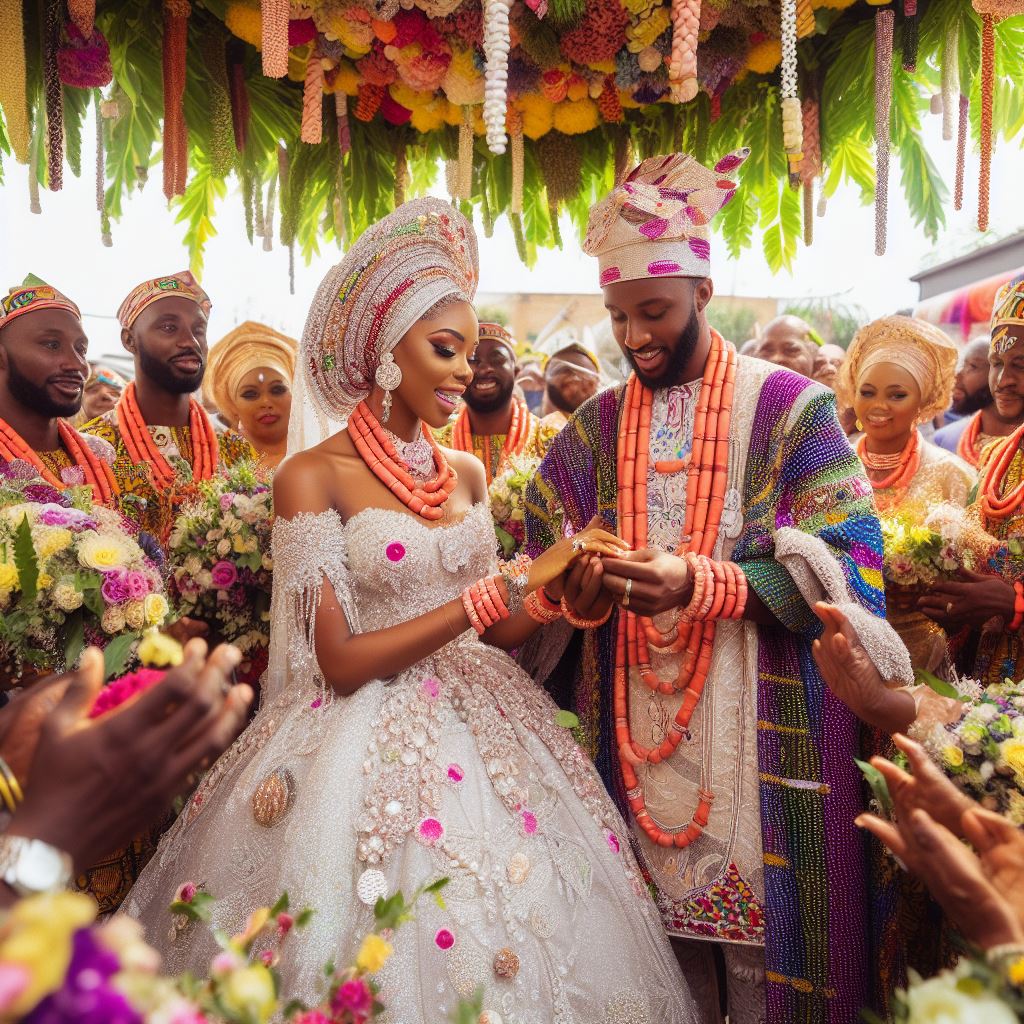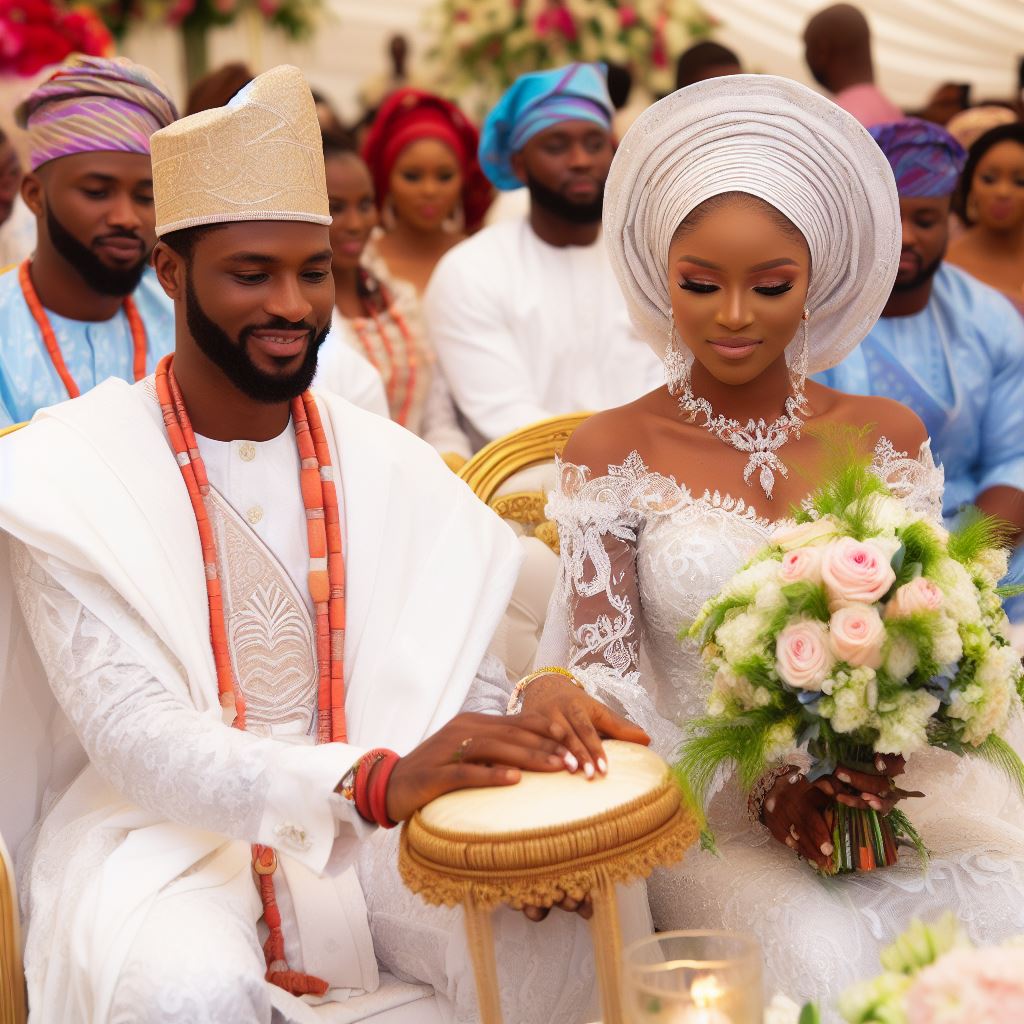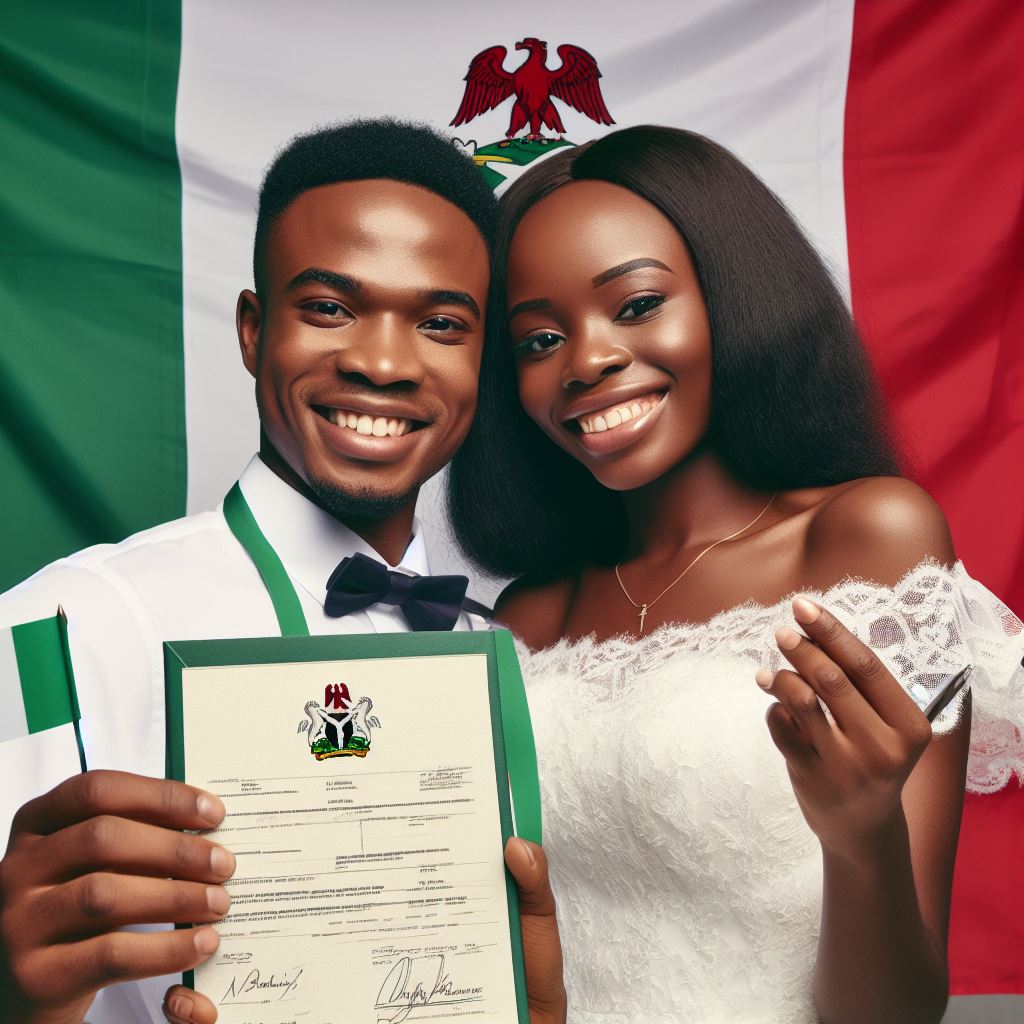Introduction
Young Nigerians are increasingly choosing ordinance marriage as a way to embrace modernity.
Ordinance marriage refers to a legal union between two individuals, without the need for traditional customs and rituals.
This trend is driven by several factors that align with the changing societal norms and values in Nigeria.
Several factors that align with the changing societal norms and values in Nigeria
Firstly, ordinance marriage offers young Nigerians the freedom to pursue their own goals and aspirations.
In a society that is becoming more individualistic, young people are prioritizing personal growth and independence.
Ordinance marriage allows them to enter into a legal union without having to adhere to the expectations and pressures of traditional marriage.
This freedom gives them the flexibility to focus on their careers, education, and personal development.
Secondly, ordinance marriage provides young Nigerians with more gender equality.
Traditional marriage in Nigeria is often characterized by patriarchal norms and expectations, which can limit women’s rights and freedoms.
Ordinance marriage, on the other hand, allows for a more egalitarian partnership, where both individuals have equal rights and responsibilities.
This appeals to young Nigerians who value equality and want to have relationships based on mutual respect and collaboration.
Lastly, ordinance marriage aligns with the changing dynamics of Nigerian society.
As the country becomes more urbanized and globalized, young people are exposed to different cultures and ideologies.
They are increasingly influenced by Western ideals of individualism, self-determination, and personal choice.
Ordinance marriage reflects these values and allows young Nigerians to establish relationships based on their own preferences and beliefs.
Basically, the rise of ordinance marriage among young Nigerians is a reflection of their desire to embrace modernity and the changing values in society.
This type of marriage offers them the freedom, equality, and personal choice they seek in their relationships.
As Nigeria continues to evolve, it is likely that more young people will choose ordinance marriage as a way to navigate the complexities of modern life.
Traditional Marriage in Nigeria
In this section, we will discuss the concept of traditional marriage in Nigeria, including an overview of traditional marriage practices, the importance of cultural and religious values, and the challenges faced by young Nigerians in traditional marriages.
Overview of traditional marriage practices
- Traditional marriage in Nigeria is a cultural practice that varies across different ethnic groups.
- It involves complex rituals and ceremonies that have been passed down through generations.
- The process typically begins with the introduction of the bride and groom’s families.
- Next, negotiations take place regarding the bride price, which is a symbolic payment by the groom’s family to the bride’s family.
- After the bride price is agreed upon, a date is set for the traditional wedding ceremony.
- The ceremony is usually a colorful and joyous celebration, filled with music, dance, and traditional attire.
- During the ceremony, important customs such as the exchange of gifts, pouring of libations, and traditional blessings take place.
- Marriage represents a union not only between two individuals, but also between two families and their communities.
Importance of cultural and religious values
- Traditional marriages in Nigeria hold significant cultural and religious value for young Nigerians.
- They are seen as a way to preserve cultural heritage and maintain family ties.
- Many Nigerians believe that traditional marriages bring blessings and ensure a successful union.
- The ceremonies also provide an opportunity for families to come together and celebrate their shared traditions.
- Religious values play a crucial role in traditional marriages, as they provide a moral and spiritual foundation for the union.
- Couples often seek the blessings of their religious leaders and incorporate religious rituals into the ceremony.
- By embracing traditional marriage, young Nigerians honor their cultural and religious identities.
Challenges faced by young Nigerians in traditional marriages
- While traditional marriages are deeply rooted in Nigerian society, they come with their own set of challenges.
- One major challenge is the issue of financial burden associated with the bride price and wedding expenses.
- Young Nigerians, especially those from low-income backgrounds, may struggle to meet these financial expectations.
- Another challenge is the clash between traditional and modern values, particularly regarding gender roles.
- Traditional marriages often uphold traditional gender norms, which may limit the freedom and choices of young individuals.
- Additionally, the pressure to conform to societal expectations and marry at a young age can be overwhelming.
- Many young Nigerians feel torn between honoring their cultural heritage and pursuing their personal ambitions and aspirations.
Generally, traditional marriage practices in Nigeria play a significant role in the lives of young Nigerians.
It allows them to connect with their cultural and religious roots, while also presenting various challenges.
By understanding these practices and the difficulties faced by young Nigerians, we can have a better appreciation for their choices, including the embrace of ordinance marriages.
Read: Top Venues for ‘Marriage by Ordinance’ Ceremonies in Nigeria
Advantages of Ordinance Marriage
When it comes to marriage, young Nigerians are increasingly embracing the concept of ordinance marriage.
This modern approach to marriage is characterized by factors such as individual choice, compatibility, and a focus on personal growth and development.
In this section, we will explore the advantages of ordinance marriage in detail.
Definition and Explanation of Ordinance Marriage
Ordinance marriage can be defined as a marriage that is based on personal choice and compatibility rather than traditional factors such as family status or societal expectations.
In this form of marriage, young Nigerians have the freedom to choose their life partners based on their own preferences and values.
Emphasis on Individual Choice and Compatibility
One of the key advantages of ordinance marriage is the emphasis on individual choice and compatibility.
Unlike traditional arranged marriages, where the decision is made by parents or other family members, ordinance marriage allows young Nigerians to have a say in choosing their life partners.
This not only ensures a stronger emotional bond between the couple but also promotes greater marital satisfaction and happiness.
Role of Education and Exposure in Changing Mindset
Education and exposure play a crucial role in changing the mindset of young Nigerians towards ordinance marriage.
As more and more young people pursue higher education and gain exposure to modern ideals, they are becoming aware of the importance of choosing partners who share their values, interests, and goals.
This shift in mindset is gradually breaking the stereotype that marriage should be solely based on societal expectations and family background.
Financial Independence and Career Aspirations
Financial independence and career aspirations are also significant factors contributing to the preference for ordinance marriage among young Nigerians.
With changing times, young individuals are prioritizing their personal growth and professional aspirations before settling down.
By choosing partners who understand and support their career goals, they can build a strong foundation for a successful and fulfilling life together.
Essentially, ordinance marriage offers several advantages to young Nigerians.
It allows them to exercise their right to choose their life partners based on compatibility and personal preferences.
Education and exposure play a significant role in changing societal mindsets towards this modern approach to marriage.
Additionally, the emphasis on financial independence and career aspirations promotes personal growth and happiness within the institution of marriage.
In general, embracing modernity through ordinance marriage empowers young Nigerians to build stronger, more fulfilling relationships.
Read: Advantages and Disadvantages of Marriage by Ordinance in Nigeria
Influence of Western Culture
Impact of globalization and exposure to Western norms
- Increased globalization has led to the spread of Western culture and values.
- Youth in Nigeria are exposed to Western ideas through travel, education, and the internet.
- These influences have contributed to the adoption of modern concepts like ordnance marriage.
Influence of media and social media platforms
- The rise of media and social media platforms has allowed for the constant exposure to Western lifestyles.
- Youth in Nigeria see Western relationships portrayed as more liberating and progressive.
- This exposure has influenced their decision to embrace ordnance marriage as a way to modernize.
Changing perceptions about gender roles and expectations
- Western culture challenges traditional gender roles and expectations.
- Nigerian youth are inspired to question traditional gender norms and seek equality in their relationships.
- Ordinance marriage aligns with their desire to have relationships based on mutual respect and partnership.
Read: Marriage by Ordinance vs. Traditional Marriage: What’s Different?
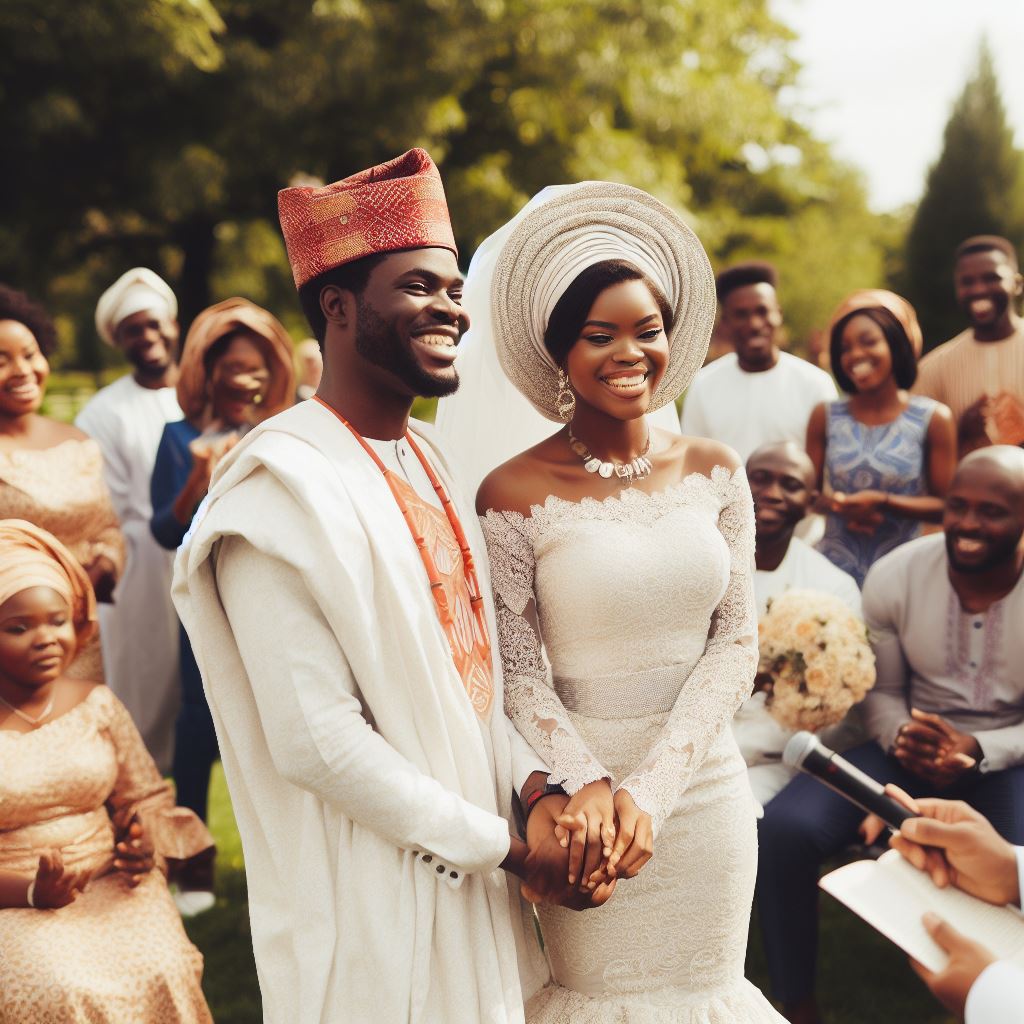
Benefits of Ordinance Marriage for Women
Marriage is an institution that has evolved over time, and embracing modernity has become a priority for young Nigerians.
Ordinance marriage, in particular, offers numerous benefits for women in terms of empowerment, freedom, and safety.
Increased empowerment and autonomy
Ordinance marriage provides women with increased empowerment and autonomy to make decisions about their lives.
In traditional marriages, women often have limited control over their choices and have to conform to societal expectations.
However, in ordinance marriage, women have a greater say in decision-making processes.
They have the ability to voice their opinions and participate actively in important matters concerning their lives.
This empowerment and autonomy allow women to have more control over their personal and professional development.
It helps them break free from the shackles of traditional gender roles and societal norms.
Freedom to pursue education and career
Ordinance marriage offers women the freedom to pursue their education and career goals.
In traditional marriages, women are often expected to prioritize household responsibilities over their own ambitions.
With ordinance marriage, women have the freedom to focus on their education and build their career without the fear of being restricted or limited by traditional marriage norms.
This opportunity enables them to achieve their aspirations and contribute to society.
The ability to pursue education and a fulfilling career not only benefits women individually but also contributes to the overall development of the nation.
Reduction in gender-based violence and discrimination
Ordinance marriage plays a significant role in reducing gender-based violence and discrimination that women often face in traditional marriages.
In many traditional marriages, women are subjected to domestic abuse and unequal treatment.
However, ordinance marriage emphasizes equality, consent, and mutual respect.
It establishes a healthier and more balanced relationship dynamic where both partners are treated with dignity and respect.
By promoting gender equality and respect for women’s rights, ordinance marriages help reduce the prevalence of domestic violence, harassment, and discrimination against women.
In essence, ordinance marriage brings numerous benefits for women in Nigeria.
It empowers them, grants them autonomy, allows them to pursue education and careers, and reduces gender-based violence and discrimination.
Embracing modernity and adopting ordinance marriage is a progressive step towards creating a society that values gender equality, women’s rights, and individual empowerment.
Read: Understanding ‘Marriage by Ordinance’ in Nigeria: A Primer
Uncover the Details: Monogamy in Nigerian Society: Changing Perceptions
Challenges and Criticisms
Traditional backlash and societal pressure
- Young Nigerians who choose ordinance marriage often face criticism from traditionalists.
- Society puts pressure on them to conform to traditional marriage practices.
- Traditional backlash may come from family members, friends, or the community.
- Criticisms stem from the belief that ordinance marriage goes against cultural norms and values.
- Traditionalists argue that it disrespects the institution of marriage and undermines traditional family structures.
Clash between modern values and cultural expectations
- Ordinance marriage challenges the traditional gender roles and power dynamics within Nigerian culture.
- It may clash with cultural expectations of women being submissive and obedient to their husbands.
- Modern Nigerian women want equal partnership and freedom to pursue their ambitions.
- Traditionalists view this as a threat to the stability and harmony of the family.
- The clash between modern values and cultural expectations can cause tension and conflict within mixed marriages.
Importance of communication and compromise in mixed marriages
- For young Nigerians choosing ordinance marriage, effective communication is vital.
- Both partners must openly express their expectations, desires, and concerns.
- Discussing cultural differences and finding common ground is crucial.
- Compromise plays a significant role in resolving conflicts and maintaining harmony.
- Building understanding and respect for each other’s values fosters a successful mixed marriage.
In a nutshell, embracing modernity by choosing ordinance marriage in Nigeria comes with challenges and criticisms.
Traditional backlash and societal pressure can make it difficult for young Nigerians to go against cultural norms.
Additionally, clashes may arise between modern values and traditional expectations, especially regarding gender roles.
However, effective communication and compromise are essential for the success of mixed marriages.
By openly discussing expectations, desires, and concerns, couples can find common ground and strengthen their relationship.
It is through understanding and respect for each other’s values that young Nigerians can navigate the challenges and criticisms they may face in their choice of ordinance marriage.
You Might Also Like: Real Stories from Nigeria: How I Honoured My Marriage Vows
Conclusion
Recap of the main points
In this blog post, we explored the reasons why young Nigerians choose ordinance marriages.
We discovered that convenience, freedom, and modernity were the main factors driving this choice.
Affirmation of the growing acceptance and popularity of ordinance marriages among young Nigerians
It is evident that ordinance marriages are becoming increasingly accepted and preferred by young Nigerians.
This form of marriage provides them with the flexibility to navigate modern lifestyles while upholding traditional values.
Final thoughts
The future of marriage in Nigeria is shifting towards ordinance marriages as young Nigerians continue to embrace modernity. It is crucial for society to understand and respect these choices to foster a harmonious coexistence between tradition and progress.

